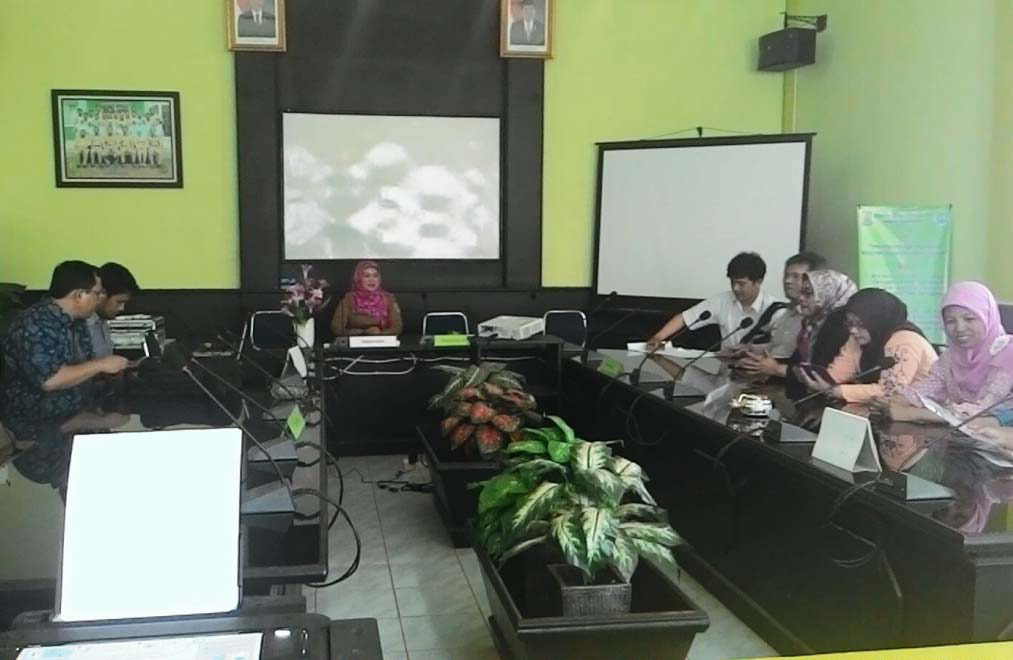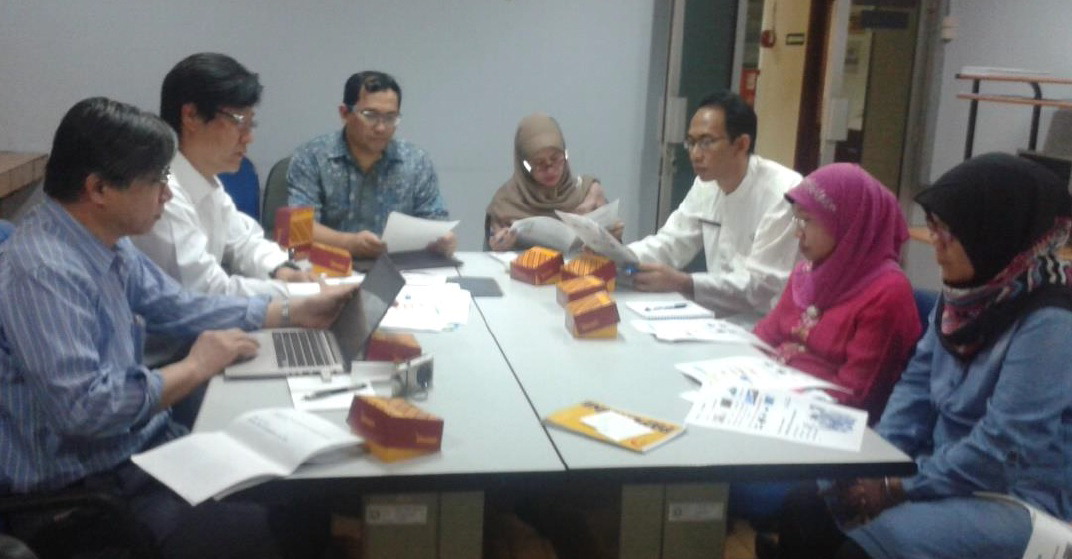Cycle 3 (2014 Deadline) Study of climate change and air quality impact from short-lived climate forcers (SLCFs) reduction in Indonesia
U.S. Partner: Gregory R. Carmichael, University of Iowa
Project Dates: September 2014 to May 2016
Short-lived climate forcers (SLCFs) such as black carbon and ozone are playing a major role in global warming, and Indonesia is one of the dominant emitters of black carbon and ozone in Asia. No comprehensive studies have been carried out to explore quantitative links between Indonesia's source emission intensity and its effects on air quality, as well as climate impacts within the region and beyond. This project is anticipated to support Indonesia’s target for 26% reduction in greenhouse gas emissions below the "business-as-usual" level by 2020 based on unilateral actions, and with further reduction of up to 41% with adequate international support. The study is expected to enhance understanding of climate processes, especially the interaction with air quality through the SLCFs, and will promote the integration of air quality improvement and climate forcing mitigation policies.
To meet this need, this research project will bring together leading Indonesian and U.S. research groups to conduct research jointly on air pollution and climate interactions. The project aims to assess the impacts of various mitigation measures of important SLCFs in the Indonesian region on air quality and climate by using a co-benefit approach, and it will aim to generate a scientific basis for policy recommendations to integrate air quality and climate policies. The study will develop realistic emission reduction scenarios and will analyze the scenarios by using a modeling tool. The U.S. partner will help by providing the modeling method and assistance. The project is expected to shed light on interactions between emissions in Indonesia and local air quality and climate. Other expected outcomes include capacity building of Indonesian researchers and policy makers in SLCF emission reduction and integration of air quality and climate forcing mitigation policies. The results will be disseminated through national workshops, scientific conferences, and scientific publications.
 |  |
| The project team hosts a local government workshop on air quality management and monitoring in Karawang City (photo courtesy of Dr. Sofyan). | The project team meets with members of the Jakarta Environmental Protection Agency (photo courtesy of Dr. Sofyan). |
Final Summary of Project Activities
During this project, which was completed at the end of September 2015, Dr. Sofyan and his team at ITB completed their five planned research components. The first was assessment of the status of SLCFs. ITB PhD student Ms. Hafidawati assessed the status and trends of surface ozone in Jakarta for 2010-2014 using data collected from automatic monitoring stations of the local environmental protection agency. Moreover, the researchers have also tracked ambient levels of other pollutants, such as PM
10, SO
2, NO
2, NO, and CO. Black carbon (BC) data in Jakarta have been collected from many secondary data sources, including BATAN (National Nuclear Energy Agency). ITB continued collecting ozone and BC data for other large cities in Indonesia, such as Bandung, Semarang, and Surabaya, and continued updating maps of the spatial distribution of PM, BC, and ozone levels over selected cities (Jakarta and Bandung). Their second research component was development of emissions inventory (EI) data. ITB continued updating to produce a comprehensive EI database of key air pollutants and climate forcers for major emission sources of Indonesia for the base year 2010. The researchers improved the emissions inventory, and Ms. Hafidawati converted the data to a 0.050 x 0.050 (about 5.5km x 5.5km) grid for air quality-climate model applications. In addition, four Master's students updated the EI for the three largest cities in Indonesia, namely Jakarta, Bandung, and Tangerang, for the base year 2013 with a resolution of 1km x 1km grid size. Ms. Lailatus Siami and Mr. Qiyam worked on traffic EI for Jakarta, Ms. Grace on the industrial sector for Jakarta, Mr. Ferry on all sectors for Bandung, and Mr. Nurdiansyah and Adi on all sectors for Tangerang. For all sectors, the EI includes major anthropogenic sources such as residential, on-road transport, crop residue open burning, etc.
The third research component in this project focused on air quality and climate modeling. ITB Master's student Ms. Amalia developed a computer server for these modeling purposes, and the team set up and ran the air quality-climate modeling systems using WRF/Chem for Jakarta and Bandung. For the case of Jakarta, ITB has collaborated with BPLHD Jakarta (Environmental Management Agency for Jakarta Province) to implement the WRF/Chem model for supporting the agency's work on developing the air quality control strategy for Jakarta. The fourth research component was emissions reduction for target sources. Master's student Mr. Qiyam developed action plans for BC emissions reduction from vehicles in Jakarta. In particular, he and the team focused on BC emissions reduction from implementation of Bus Rapid Transport (BRT) in Jakarta.
The fifth and final research component was networking, capacity building, and dissemination. In this regard, Dr. Sofyan and his team facilitated data sharing and knowledge transfer through the research network and disseminated their information to policy makers and the public through various forums. For example, several meetings were organized between the ITB researchers and the Ministry of Environment of Indonesia, the environmental protection agencies of Jakarta and Bandung, NGOs, and interested members of the public to discuss the most feasible emissions reduction scenarios in Indonesia. For dissemination within the academic community, Dr. Sofyan presented some of his team’s research results at the International Joint Seminar of Japan and Indonesia "Environmental Sustainability and Disaster Prevention (ESDP-2015)" in Bali March 22-24, 2015. Although his PEER grant has now been completed, he will also present a paper entitled “Emission Reduction From Implementation of Bus Rapid Transit Corridor 13th in Jakarta” at the 5th Environmental Technology and Management Conference “Green Technology towards Sustainable Environment,” November 23 - 24, 2015, in Bandung. To continue his research. Dr. Sofyan has received a grant from the Ministry of Higher Education of Indonesia.
Back to PEER Science Cycle 3 Grants





